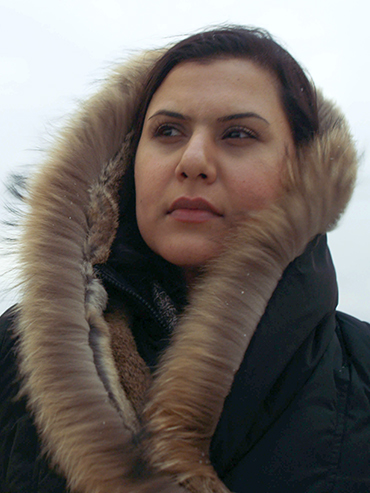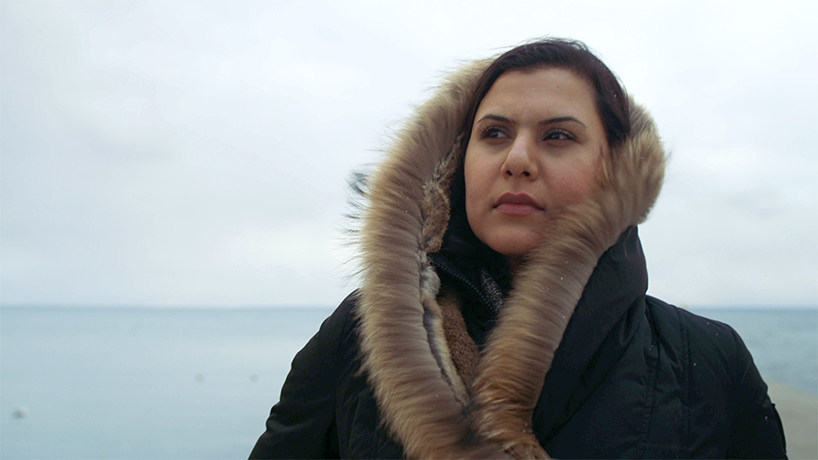I’ve Had Cancer Three Times. Depression Was Harder to Handle
*Trigger warning* this article contains reference to suicide


When I was 15, I was diagnosed with thyroid cancer. I had to go through radiation therapy and surgery to remove my thyroid, the gland that controls your metabolism. I gained over 40 pounds in one month. The same thing happened when, at 21, it reoccured. This time it had spread to the lymph nodes in my neck, so I needed more radiation therapy and surgery to remove the tumours. That surgery left me with chronic pain. Then, at 25, I was diagnosed with breast cancer. I had a lumpectomy, and two weeks later, I began four rounds of chemotherapy. The entire treatment lasted about six months. But while going through cancer was difficult, but I always felt well-cared for—my specialists were always communicating with me, and my family was always supportive and there for me.
That was definitely not the case when it came to my mental health.
It’s kind of difficult for me to remember when, or even if, anyone ever gave me an official diagnosis. I just knew there was something really, really wrong with me—I wanted to end my own life every single day. When I told my family and peers about my mental illness, they tried to be understanding, but it was hard for them to really “get it.” While my mom understood my pain and could help me physically when I was going through cancer, she couldn’t comprehend what was going on in my mind with depression—and thus couldn’t help me.
In grade seven, I reached out to a guidance counsellor and said, “I have constant thoughts of suicide and I don’t know what to do about it.” The school brought in a psychologist to speak to me, but I only got to go to one appointment before I moved to another school. I couldn’t bring myself to put my depression out there again—it would just take too much energy—so I slipped through the cracks.
My experience perfectly illustrates the problem with the way we think about health: When I was diagnosed with cancer, I knew that my doctors were going to take care of me. With mental health, I couldn’t say the same.
I tried to get help for my depression, but I felt judged
After my first cancer diagnosis in high school, I did try to get help for my mental health. But I didn’t receive a lot of support, and I felt like I was being shamed silently by everybody in my life. From a young age, my family had played off my mental illness—they told me I was being dramatic and reprimanded me when I told them I was struggling.
When I was diagnosed with thyroid cancer for the second time, I started looking for help again. I tried to go through the hospital to see a mental health professional, but I didn’t have my license, so I had to rely on my family members to get around and they weren’t comfortable with taking me. I did manage to get myself to a couple of appointments with a psychiatrist, but the staff were cold towards me and I was uncomfortable in a hospital environment. In my experience, the hospital system makes you pursue treatment on your own and doesn’t try very hard to follow up, so I stopped going. Instead I bottled up my emotions and closed myself off from everyone around me.
It wasn’t until my breast cancer diagnosis that I started having panic attacks, which made me realize that I needed to talk to someone. I had actually had panic attacks before between my first two cancer diagnoses, I just didn’t know it. When I had attacks back then, my family calmed me down and assured me the cause was low blood sugar.
After cancer, I also had PTSD
But around the time of my breast cancer diagnosis, my panic attacks started getting worse. I went to a psychologist, who diagnosed me with chronic PTSD. Since I never had consistent mental health treatment before this, I had gone undiagnosed. It was incredibly helpful to be able to name what was wrong with me, and to realize that I was traumatized from my experience with cancer. I wasn’t just struggling from years and years of depression—losing control over my body and my life had also taken a toll on my mental health.
The psychologist gave me exercises to do, including meditation and painting, which helped me to zone out for a while when I started my breast cancer treatment. But again, something prevented me from continuing to get help for my depression and PTSD. This time, it was money. When I began breast cancer treatment I had to drop out of school, which meant I also lost my health coverage.
Being depressed made having cancer so much worse
When you’re already fighting a monster in your head, something like cancer is enough to break you. But I didn’t even need cancer to break me. I was already breaking. Depression affects every single part of my life. My symptoms aren’t just mental; they’re also physical. If I’m having a down day where I’m unable to pick myself up, my pain is actually going to be a lot worse. My depression actually made having cancer even harder—if you’re mentally in a healthy place, you have more coping mechanisms. But I wasn’t, and didn’t.
I’ve met so many cancer patients and survivors who have similar experiences with depression and mental illness. While every patient deals with cancer in different ways, I can guarantee you that every single one of us struggles with mental health at some point. With breast cancer, I felt this pressure to keep fighting—you have to put on a brave face or else people will think you’re not dealing with it the way you’re supposed to. The pressure to adopt a “warrior mentality” can affect all areas of your life—I was fighting with my family, my self-esteem was low and I found it harder to focus at work. What cancer patients have to know is that when you feel trapped inside your own body and you lose your will to live, that’s not the actual physical disease—that’s the mental health aspect of it.
Social media kudos don’t always translate to practical help
The worst part is, even though many cancer patients are struggling with their mental health in one way or another, hospitals don’t provide adequate mental health services. In my experience, there is usually a social worker there if you needed to talk about your cancer journey. But when I tried to talk to mine, our conversation was focused on what she could do physically to make me feel better, not my underlying mental health, and that’s not the kind of support I needed.
In order to begin providing adequate support and treatment for individuals suffering with mental illness, we need to end the stigma. Now, there’s more awareness surrounding mental health, but we’re still in a transitional phase—people will commend you for sharing your story, but that doesn’t always translate to practical support in real life. For example, I’ve found people were patient with me when I was undergoing cancer treatment, but still don’t accept my depression as an excuse to miss deadlines or skip family events. But my depression is paralyzing. If it gets bad enough, I can’t move.
Why I’m speaking out about mental illness
That’s why I’m sharing my story in the Centre for Addiction and Mental Health’s Mental Health is Health campaign. I want to break the stigma surrounding mental health, because too many people die from mental health issues that aren’t being treated as diligently as physical health problems. Plus, your mental health and physical health are interconnected. You can’t neglect one part and keep shooting at the other part trying to fix it, because you’re only fighting half the battle.
Right now, mental health is a whole other cancer that just hasn’t been recognized, and society isn’t even aware of how dangerous it is. Could you imagine if there was a type of cancer that was killing off people and we were just gawking at it, ignoring it or were uncomfortable talking about it? Well, that’s happening right now; it’s called mental illness.
At this point, I want my quality of life before quantity of life. If I got cancer again, I wouldn’t want to go through chemotherapy, because I would rather be focusing on my mental health. I know first-hand depression and mental illness can be the loneliest thing in the world. All I can hope in sharing my story is that people out there feel less alone—and that mental health will finally get the attention and funding that it needs. —as told to Jessie Borsellino
Related:
My Life is Wonderful, But Sometimes I Can’t Get Out of Bed
This Woman Creates 3-D Nipple Tattoos for Breast Cancer Survivors
Shannon Purser Opens Up About Her Battle with OCD & Depression








